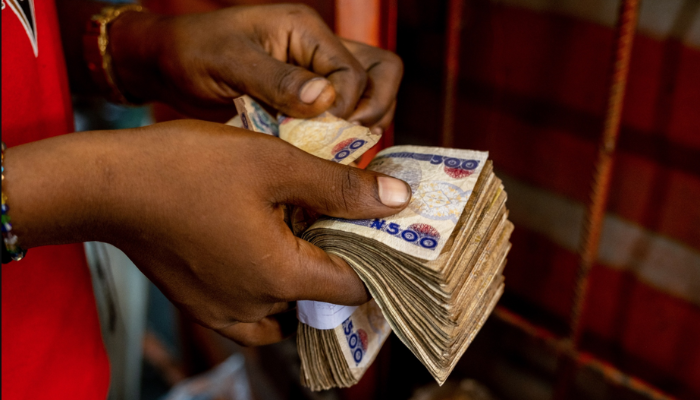Nigeria’s naira hit a near seven-month high boosted by stronger oil export earnings and foreign demand for the high yields offered by the local debt market ahead of possible interest rate cut next week.
The naira closed at 1,495.25 per dollar on Monday, according to data compiled by Bloomberg, breaking below the psychological level of 1,500 for the first time since February.
A “current-account surplus and high nominal rates are two key factors supporting the naira and making it an interesting trade for global portfolio investors,” said Charlie Robertson, head of macro strategy at FIM Partners.
Africa’s largest oil producer had a current-account surplus of $4.98 billion in the six months through June, according to data from the nation’s statistics office. An indication that the country earns more money from abroad than it spends on imports, it has been positive since the last quarter of 2022.
The surplus has been helped by increased crude sales and other oil shipments, which accounted for about 87% of its export earnings in the first half of the year, as well as healthy foreign inflows into high-yield debt auctioned by the central bank. These factors have lifted foreign exchange reserves to the highest levels since November 2021.
The stronger naira and a gradual cooling in inflation could grant the central bank scope to lower borrowing rates for the first time in five years at its meeting on Sept. 23 after leaving them on hold at 27.5% since last year.
A Bloomberg gauge of return on Nigerian local currency bonds is up 2.6% this month, more than twice the broader measure for emerging markets. The index is up 26.7% this year, the most since at least 2020.
While the CBN has signaled it “might start cutting, it is far behind most other central banks and the monetary easing is likely to be more gradual,” said Mark Bohlund, senior credit research analyst at REDD Intelligence. This will keep yield differentials in favour of Nigerian debt and underpin naira gains, he said.

